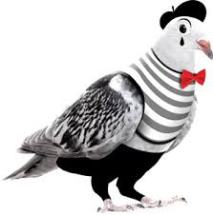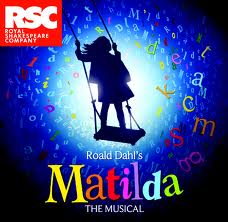As promised! Below is my interview with writer/director/producer of “An Insomniac’s Guide to Ambulances,” RACHEL CREEGER. Enjoy!
A- Can you explain your background in the entertainment business a little bit?
I’ve been involved in performing arts since I was a child, in school and community productions, singing in bands and choirs, and generally showing off! I left my “day job” to work full time in the arts about 5 years ago when Time2Shine was born, I realized that it had stopped being a hobby and had somehow stealthily and sneakily become a career…
A- When did you first start writing?
I have always been a writer, writing stories, poetry and songs. It was something that felt very natural to me. My aunt is a music journalist and singer/songwriter (Vivien Goldman) and she was always encouraging me to do something more with it.
A- What was your first play/piece that was performed? Was it good/bad? What did you learn?
The first time one of my songs was performed in public by a group I was involved in, I was quite overwhelmed and knew it was something that I would come back to again and again. My own productions have been performed in the public domain since March 2010, the first being “Esther! The Musical” at Artsdepot and the second, which was a commission running almost simultaneously with that one, was “Gil and Chen’s Metsuyan Adventure” at the Intimate Theatre. “Esther! The Musical” started off about 10 years earlier as a 30-minute piece of performance poetry which was commissioned by a school I was working in as an informal educator. Over the years I kept playing with it, adding songs and characters until it became a full length musical. It was performed by a cast of teenagers at Artsdepot in support of a charity called GIFT. Prior to that I had been working with other community and semi-professional theatre companies for about 3 years in my spare time, so I was able to learn a lot about producing shows. I also acted as a lyricist for them and eventually joined with 6 peers to develop the vocal harmony group (show choir) Kol Sheva.
A- Why do you write?
I write whenever I have a story to tell. It becomes an obsession. When it comes to my theatre pieces I spend a huge amount of time developing the characters and writing about them, their backgrounds, likes, dislikes, looks, accents, before I even begin to think about the dialogue. This means that once I start constructing the script, the characters have their own voices and almost speak for themselves. My family all joke that there are times when they speak to me and they can just see that a whole other conversation is going on in my head between fictional people! With music, I work in a similar way. The melody has to spend time germinating in my head before it emerges ready for lyrics.
A- Can you explain your previous experiences (if any) with the Camden Fringe Festival? What does the Camden Fringe mean to you?
My play “Staffroom” was in the Camden Fringe last summer, at the Tristan Bates theatre in the West End. I love the fact that London is developing a fringe festival, we have a world-class theatre scene and it has struck me in the past that it is quite bizarre how everyone decamps to Edinburgh when there is so much opportunity on the doorstep. Edinburgh has become a huge and competitive machine, and although it is still somewhere I would like to experience taking one of my pieces, I am aware that the expense can be enormous. I have friends who have sold out their shows but yet still come back in debt from paying for the accommodation, travel, theatre hire, marketing etc. “Staffroom” last year gave me a wonderful experience of the Camden Fringe, I found it to be a great group of diverse performers, writers and directors, and the festival organizers themselves (Zena and Michelle) were amazingly supportive. The play was voted “Most Audience Recommended” in the Fringe, which was fantastic.
A- What prompted you to write this play?
This piece was borne out of many late night Facebook chats about Aryeh Meyer’s and my past experiences, his as a paramedic and mine working with vulnerable families. Aryeh’s blog “InsomniacMedic” was the starting point for this immersive piece, which blends fiction and fact from our working lives.
A- How did you collaborate on this play with Aryeh Meyers?
As Aryeh lives abroad, he and I spent hours on Skype and Facebook discussing the play initially and then I wrote it based on those conversations. We each chose about 10 stories from our past experiences that we felt had strong pulls for us, and then I worked through them to find a selection that would support the journey of the fictional character of Leo that I had created. He made sure that any medical elements were accurate and that he felt I was true to the experience of paramedics. We even skyped him for a couple of rehearsals! He also arranged for me to meet some of his colleagues, including Alex Milliner who then spent a day with us in rehearsals. In another context I had met one of the Operations Managers for the London Ambulance Service who was also an immense help, allowing me to spend time in their depot and showing me around the different vehicles.
A-Did you perform other roles as well (ex: directing, marketing..) ?
I have performed all of the roles except the acting!
A- Can you explain some of the choices you made in the set up of the show?
1) The three different sets
An area I find very interesting in my work is examining the way that people interact in specific spaces. For example, we act differently with our families in our homes to the way in which we behave with our colleagues in the staffroom. To get to know someone properly, you need to see them in a variety of contexts. I felt that as Leo was a complex character it would help the audience to understand him better if they saw how he interacted with his peers in the mess room, with his partner at home and then when he was out in the public domain.
2) The actors talking over each other’s monologues
As this piece is immersive much of the performance is designed for the experience it provides above and beyond the dialogue. The purpose of that scene is to convey the sense that when people hear a story that echoes with their own story, they can’t help but to remember their experiences as reflected in that tale. In the scene that you have mentioned, the story of Jude “the broken soldier” throws up painful memories for both Leo and Richard as they treat him, because they have all been on similar emotional journeys. They move to different places in the room and each share their internal monologues whilst really their bodies have remained crouched next to Jude, as he tells his own story.
This technique is also used when the 999 dispatchers come into the audience to ask for descriptions of the noises you can hear, it’s to make the audience really listen to the sound and the effect that it would have on you if you were a neighbor or bystander.
3) Audience interaction at the “group therapy” session
My work always contains audience interaction; I love the breaching of the “fourth wall”. Leo has been described as an “everyman” character and one way of helping the audience to experience this is for them to participate in his life in a real and immediate way. The cast will tell you that we did the same improv at all of the auditions, we would see 5 candidates for 10 minutes each and then all of them would be brought back into the audition room to participate in a sleep clinic! I also trained as a therapist and thought it would be interesting to see how the character of Leo would respond to a psychologist who supported a very different kind of medical approach to his own.
4) Interlude music/ voiceover
The music is all themed around sleep and dreams. As we have very complex scene and costume changes (with 5 of the 6 actors playing numerous roles) we needed to do something to landscape the spaces between scenes. They have each been chosen because of their tone or lyrics which help to set the stage for the following scene, including the music played as the audience enters (Dream On by Aerosmith) and leaves (Golden Slumbers by the Beatles)
5) Flashlight usage
I chose to have the audience members come on stage and light the scene using flashlights because this is a dream sequence depicting a car crash. I wanted to convey a sense of the chaos, drama and uncertainty in such a situation, and to give the audience the choice of what they wanted to see. The lights moving and flickering give a sense of both the dream and also the reality of a crash, and also help the actors to feel the anxiety and lack of control that they would genuinely experience. Both Aryeh and I have been involved in serious car accidents and we wanted to make this a powerful and empowering moment as those incidents have helped to shape us.
A- How do you feel about the finished product? What did you learn from this experience?
I am really proud with what we have achieved. This is the very first outing for this piece and I think it will grow and develop. The main thing for me is that Aryeh is happy with it! As he had to relinquish control and also give up his anonymity as the writer of InsomniacMedic.com it would have been awful if he hadn’t liked the final result!
A- If you could give one piece of advice for writers who want to get their work produced, what would it be?
One thing that I find immensely useful is having my writing work-shopped before I move on to a final draft. I participate in an event called Sunday Surgery, which is a workshop for writers, actors and directors run by MSFT. They will allocate a director and cast a section of your piece so that you can see how it works and how an audience responds – not your friends and family who will say nice things, but people who are also theatre professionals and will be honest. This is invaluable.
A- Anything else you would like to say about “Insomniac’s?”
We were the only production in the festival to have a signed performance with a British Sign Language interpreter. This has been a long-held ambition of mine, which was further fuelled when I discovered that the parents of one of my cast members are deaf. It was an amazing experience to watch her convey such a complicated presentation to the hearing impaired members of the audience, I was really proud that we managed to offer that.
A- What is next in your future?
I have had a children’s production commissioned which I begin working on in October. I am heavily involved in the DYSPLA festival in November (which I love!) and I am also working on a new play for next year about a group of women at a speed dating night – this is an exciting project as it will be a one-act play in real time! Just for fun, I am also working on a musical with a songwriting partner, based on the biblical story of Ruth – we sit down every so often whenever we have some time, it will probably take us years to finish but it’s a labor of love!
Thank you so much to Rachel for her amazing stories and wise words!
If you’d like to learn more about this show and the Camden Fringe, check out the links below!!
More info:
https://www.facebook.com/groups/AnInsomniacsGuideToAmbulances/
Booking:
www.camdenfringe.org
Till next time readers!
~A















